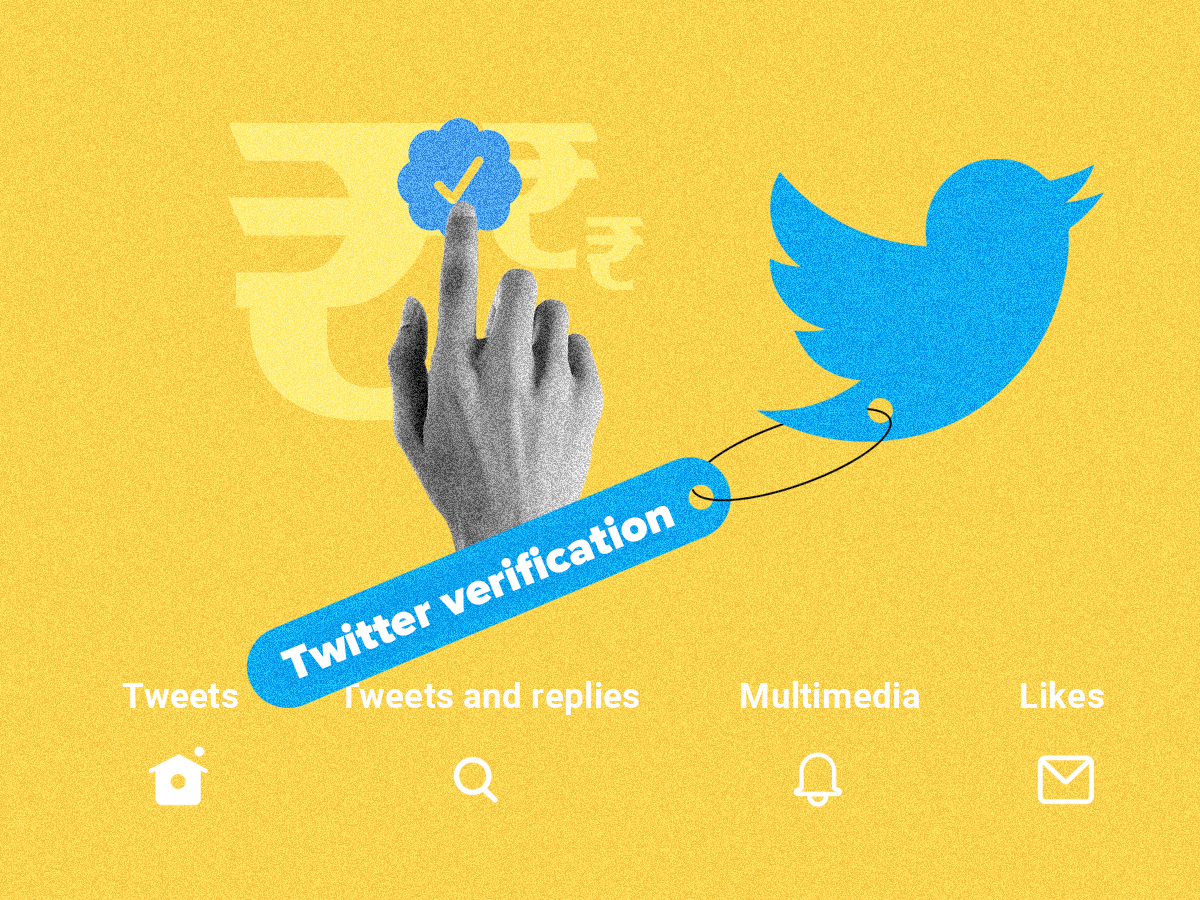Experts flag data bill concerns; crypto exchanges seek new revenue streams
Also in this letter:
■ Crypto blues cause exchanges to seek new revenue streams
■ India Inc to take a cue from govt on Twitter blue ticks
■ Govt wants ecomm, hotel, travel platforms to reveal rating methodology
Draft data bill gives govt plenty of scope to expand powers: experts

The draft Digital Personal Data Protection Bill, 2022 leaves much scope for the government to expand its powers through the executive rule-making process, legal and policy experts have said.
The government released the new draft of the legislation on November 18 and sought public feedback until December 17.
Yes, but: Though the draft has significantly simplified the legislation and addressed several industry concerns regarding the Bill’s previous versions, experts said the current version does not go into the specifics of the implementation.
The subsequent rules, which will be notified later under the law, will define the exact guardrails under which data will be governed in India, they added.
Concerns over govt exemptions: Experts also said that broad exemptions provided for the government, both central as well as state, are worrisome because the government is the largest collector of data and, thereby, the largest data fiduciary.
A lot is “left to the rules,” and the “executive in India has a track record” of relying on rules to expand its powers, said Mishi Choudhary, technology lawyer and legal director at SFLC.
“The bill meets expectations of people protection but ensures that the government retains all power without any checks or balances,” Choudhary said.
Justice Srikrishna agrees: Justice BN Srikrishna, retired judge of the Supreme Court of India who headed a 10-member committee that released the first draft of the Personal Data Protection Bill in 2018, also expressed concern about sweeping exemptions for the government in the latest draft bill.
“The government has gotten a blank cheque with this bill. They, central or state, can do anything, anytime, under any section of the bill. This is concerning because if you are going to somehow make an inroad into data protection as a fundamental right, it can’t be guaranteed anymore. They (the government) are not bound by the bill at all,” he told us in an interview.
Crypto blues cause exchanges to seek new revenue streams

Regulatory ambivalence and subdued demand sentiment could cause Indian crypto players to look at diversifying their revenue streams, and while exchanges say crypto will continue to be their mainstay, many analysts believe they could be left with little choice.
It’s begun: Some of the players in the space have begun tapping into potential adjacencies.
CoinDCX, which launched a venture investment arm, has invested in startups in the Web3 infrastructure space.
CoinSwitch Kuber, which also has a venture fund for Web3 startups, is looking to become a broader retail investment platform, with other asset class options such as mutual funds and US stocks on its app. Its venture investment arm has invested in 13 startups so far, of which almost two-thirds are in the Web3 infrastructure space, he said.
Globally, 2022 has been a turbulent year for the cryptocurrency industry, with stablecoins crashes earlier in the year and the recent collapse of FTX, once among the world’s largest cryptocurrency exchanges.
Regulatory rollercoaster: In India, the crypto sector’s journey has been marked by ups and downs in terms of regulatory moves. These include an unofficial ban by the RBI in 2018 (which the Supreme Court overturned in 2020), several stop-start attempts at introducing a crypto bill in Parliament, and harsh new taxes on crypto earlier this year.
Changpeng Zhao, CEO of Binance, the world’s biggest crypto exchange by volume, said last week he didn’t think the crypto environment in India was very friendly, and that the exchange business in the country was not viable.
A MESSAGE FROM ZS
ZS PRIZE healthcare challenge invites startups to solve for India

ZS, a global management consulting and technology firm, is inviting startups, students, innovators, and working professionals to apply for ZS PRIZE, an initiative to recognize, celebrate, and advance the most impactful tech-enabled healthcare innovations solving for India.
Here are some reasons why you should participate in ZS PRIZE:
- #SolveForIndia: Once-in-a-lifetime opportunity to solve for India’s most pressing healthcare challenges and create real impact
- Prize money: ZS PRIZE has total prize amount to Rs 1.5 crore to be shared among the winners
- Eminent jury: Showcase solutions to a jury that boasts of some of the biggest names from the healthcare and tech industries
- Mentorship: In-depth expertise from within the healthcare industry through an in-built 6-weeks mentorship program
- Recognition: Honor of winning the coveted ZS PRIZE and getting nation-wide recognition
Registrations will close late December 2022. Apply now.
India Inc to take a cue from govt on Twitter blue ticks

India Inc says it will take a cue from the government on how to respond to new Twitter owner Elon Musk’s move to charge $8 a month for the blue-tick verification badge for user accounts on the platform.
Promo central: Twitter has emerged as a favoured platform, especially since the start of Covid, for companies to announce new products, strategies and campaigns. Quite a few honchos are also very active to promote their companies and brands, or share their views, on Twitter.
Yes, but: Most companies are currently wary of having an aggressive advertising strategy for the platform, as they want to first see the direction that the new leadership at Twitter takes, the chief marketing officer at a top conglomerate said.
Govt’s take: The Ministry of External Affairs spokesperson said earlier this month that the government would make a decision based “on the contours of the subscription service”. Law enforcement and government agencies use verified Twitter accounts to disseminate important public information.
TWEET OF THE DAY
Govt wants ecomm, hotel, travel platforms to reveal rating methodology

Ecommerce companies and hotel and travel booking platforms should disclose their methodology for giving star ratings to products and services on their platforms as per a new set of standards released by the government to counter fake reviews on such sites.
Companies such as Tata Sons, Amazon, Flipkart, Zepto, Reliance, Google, Meta, Zomato, Swiggy, Meesho and Blinkit were on a committee that helped the government develop these standards.
Details: Companies will also have to disclose if a customer review is solicited or paid for or purchased, according to the new framework.
“The objective is to minimise the bias and fraudulent reviews to start with,” Rohit Kumar Singh, secretary at the Department of Consumer Affairs, said here on Monday. The standards are self-regulatory at the moment. However, they may be made mandatory in future, Singh said.
They will come into effect from November 25.
Other Top Stories By Our Reporters

Valuation reset coming next year, says Flipkart group CEO: Flipkart group CEO Kalyan Krishnamurthy said at The Economic Times Startup Awards 2022 (ETSA) that Indian startups will go through a lot of turmoil and volatility over the next 12-18 months, as the funding crunch will start to affect new-age tech companies only by the early part of next year. He added that things will get better after that, and that companies should focus on surviving this period.
SoftBank exec cautions startups: Sumer Juneja, managing partner, India and EMEA, SoftBank Investment Advisers, said at ETSA 2022 that Indian startups will need to understand their true value and revise their valuations in line with their counterparts in markets such as the US and Europe. “If you do not realise what your true value is given the new cost of capital, it is a dangerous game to play,” Juneja said.
Down rounds an acceptable option to extend runway, say founders, CEOs: At a time when venture capital funding for startups has slowed down significantly, top founders, CEOs and investors said raising funds in a down round is a completely acceptable option for entrepreneurs if it provides them with much-needed liquidity and extends their cash runway. A down round is when a private company raises capital at a lower valuation than in its previous funding round.
Global Picks We Are Reading
■ A leak details Apple’s secret dirt on a trusted security startup (Wired)
■ Elon Musk’s downscaled Twitter faces World Cup test (WSJ)
■ Bangladesh’s food delivery startups struggle as funding dries up (Rest of World)
For all the latest Technology News Click Here
For the latest news and updates, follow us on Google News.

